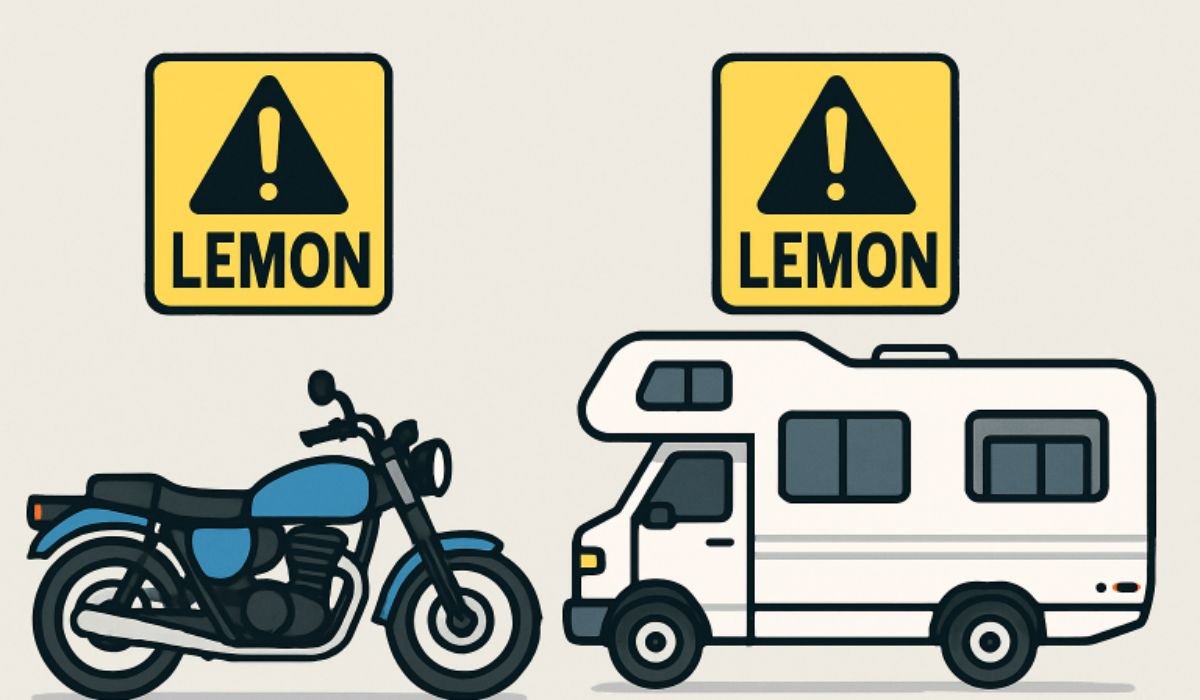Table of Contents
- Understanding Lemon Laws
- Motorcycles and Lemon Laws
- RVs and Lemon Laws
- Federal Protections
- Steps to Take if You Have a Lemon
- Final Thoughts
Purchasing a motorcycle or recreational vehicle (RV) represents more than just acquiring a new form of transportation or adventure pod—it’s a significant investment in freedom and lifestyle. But what happens when your dream ride turns out to be riddled with defects and mechanical failures? Many consumers turn to lemon law lawyers in Missouri or seek legal advice in their own states, hoping to find protection under lemon laws. Yet, the protections for motorcycles and RVs are far from uniform, making it essential to know your rights before purchasing or seeking repairs.
Lemon laws were crafted to address vehicles with persistent issues that undermine reliability, safety, or value—granting buyers recourse if the product fails to meet reasonable expectations. However, the patchwork of state lemon laws creates confusion regarding which vehicles are covered and under what circumstances. This article explores the nuances of how these laws apply to motorcycles and RVs, outlining federal alternatives and key steps for owners facing chronic vehicle problems.
Understanding Lemon Laws
Lemon laws are intended to protect consumers from being stuck with vehicles (often new but sometimes used) that have substantial manufacturing or design defects. These laws typically require the manufacturer to repair, replace, or refund the defective vehicle after a reasonable number of repair attempts have failed to resolve the core issue. The precise definition of a “reasonable number of attempts” and what qualifies as a “substantial defect” varies, as do the types of vehicles covered from one state to another (National Highway Traffic Safety Administration).
For consumers, this patchwork means diligent research before seeking relief. Some states extend lemon law protections to non-traditional vehicles, such as motorcycles and RVs, while others limit coverage to passenger cars and light trucks. In most cases, the coverage window is limited to the first months or miles of ownership.
Motorcycles and Lemon Laws
The treatment of motorcycles under lemon laws is far from standardized. Several states, including Virginia, explicitly include motorcycles, affording protection much like that given to standard automobiles. This inclusion allows motorcycle owners to file claims if repeated defects compromise the bike’s value or safety. In such states, you’re entitled to ask for repairs and, if those fail, seek a replacement or refund.
In contrast, states such as Minnesota exclude motorcycles from statutory lemon law protections. Owners may need to turn to alternative remedies, such as the federal Magnuson-Moss Warranty Act, or pursue a breach of warranty claim. Checking your own state’s rules is critical—the exclusions can be surprising and leave many owners with limited options for relief.
RVs and Lemon Laws
Recreational vehicles introduce additional complications into the lemon law landscape, due to their dual identity as both a home and a vehicle. In California, for example, the lemon law may protect only the vehicle’s chassis and drivetrain, while excluding components such as plumbing and appliances. In contrast, Florida’s lemon law expressly excludes motorhomes, leaving RV owners without any state-level recourse for chronic issues occurring after purchase.
This complexity requires RV buyers and owners to scrutinize state lemon law texts. Sometimes, separate warranties exist for different portions of an RV, so an issue in the living quarters may not qualify as a “lemon” even though mechanical failures might. Buyers should also pay close attention to warranty booklets and how states interpret coverage for vehicles built in multiple stages (like custom RV builds).
Federal Protections
If a motorcycle or RV falls through the cracks of a state program, hope isn’t lost: the federal Magnuson-Moss Warranty Act may step in. This law, passed in 1975, enables consumers to seek a remedy for products—including motorcycles and RVs—sold with written warranties if defects emerge and authorized repairs are unsuccessful. Under Magnuson-Moss, consumers may be entitled to compensation, replacement, or refund, depending on circumstances, and often with legal fees covered if they prevail in court.
This act is a crucial backstop when state-specific laws exclude your particular vehicle. Legal professionals familiar with federal warranty protection can help you weigh whether to file a lawsuit, negotiate directly with a manufacturer, or pursue arbitration to resolve your claim.
Steps to Take if You Have a Lemon
- Document Everything: Maintain meticulous records of repairs, including invoices, correspondence, descriptions of issues, and the dates and duration of visits to authorized repair shops. Documentation is often the key to a successful lemon law claim.
- Understand Your State’s Laws: Before pursuing a claim, verify whether your motorcycle or RV is covered under your state’s lemon law, and carefully note the timelines and conditions for eligibility. Some states require arbitration or specific repair attempts before taking the next step. Official state government websites are often helpful starting points for this research.
- Consult a Legal Professional: Given the complexity of both state and federal warranty laws, seeking advice from an attorney—or services specializing in lemon law and consumer rights—can ensure you take the proper steps and meet deadlines. In many instances, legal counsel can assist with negotiations and paperwork even before you reach the litigation phase.
Final Thoughts
Motorcycles and RVs offer unique experiences for their owners, but they’re not exempt from defects that can turn joy into frustration. Lemon laws provide important consumer protections, but the scope and application of these rules—especially for non-traditional vehicles—vary dramatically by state. Understanding the law where you live, including available federal protections, is critical to ensuring a fair outcome if you end up with a defective vehicle. Being proactive, meticulous with records, and willing to seek legal help will maximize your chances for relief and peace of mind.
YOU MAY ALSO LIKE: Beyond the Picker: How Mike Wolfe Passion Project is Resuscitating Small-Town America

